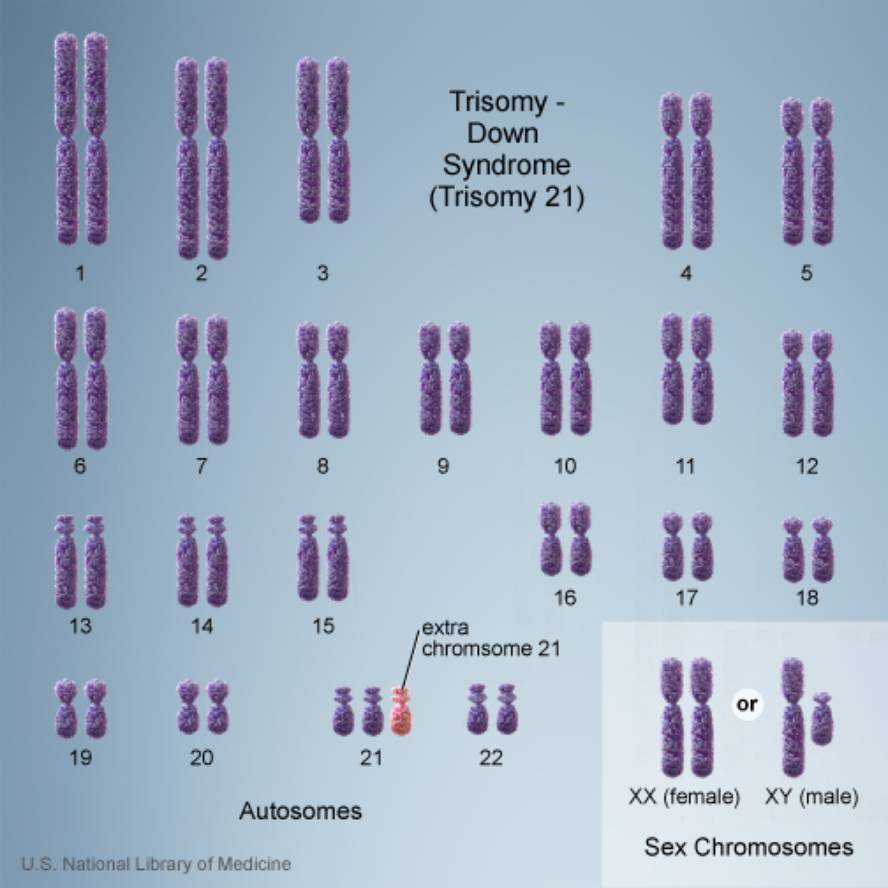Down syndrome: additional chromosome effect on the entire genome
It is very rare that one of the monozygous twins has Down syndrome and the other is not, only one of the 385,000 cases. A team of researchers led by the University of Geneva has had the opportunity to perform a genetic analysis of one of these cases, and has found that the presence of 21 tripled chromosomes affects the expression of the entire genome.The research has been published in the journal Nature.
For years, researchers have considered that the differential characteristics of Down syndrome were due to products generated by the expression of this third number of chromosome 21. However, according to the recent published research, some of the additional chromosome genetic areas are expressed more than enough and others are expressed in excess. This phenomenon has been known by researchers as GEDD (gene expression dysregulation domains).
It is explained that these expressive incidences affect the intracellular position of genetic information, which causes errors in transcription throughout the genome. It should be noted that this genetic study was carried out in the embryonic phase of cells.
The researchers have confirmed that the same phenomenon observed in human embryonic cells occurs in mice used to research Down syndrome. In addition, it has been suggested that when a grain appears on other chromosomal walls, something similar can happen, that is, that the influence of the presence of a chromosome more than necessary is not limited to the expression of the genes of this chromosome but extends to the entire genome.
The researchers intend to continue investigating in the same line, with a clear objective: to be able to correct the incidences that occur in the expression of the genes to prevent the person with trisomy from suffering consequences.





